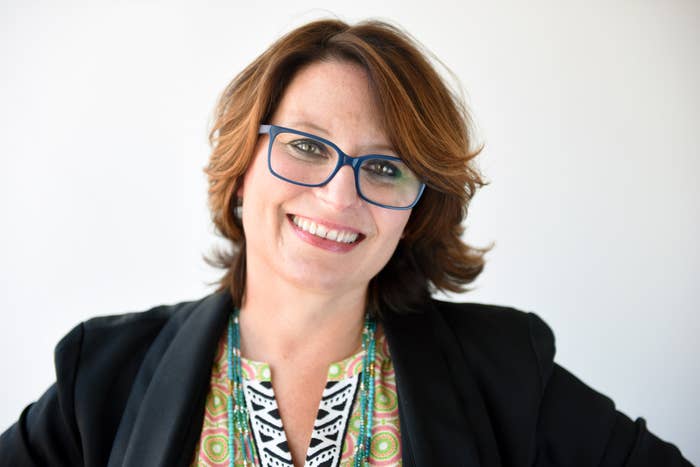
Before Meg Cabot was a published author of over 50 books, including the beloved Princess Diaries series, she worked as the assistant manager in a residence hall at New York University.
"The first thing I learned there, besides the fact that some freshmen do not know how to take out their trash, was the phrase situational depression." Cabot told BuzzFeed.
According to Mayo Clinic, situational depression is also referred to as adjustment disorder and is defined as "a type of stress-related mental illness." It's a condition that occurs when someone struggles to adjust to a specific life event or point of stress. Individuals can also be affected by stressful, on-going events that occur on a regular basis. Situational depression and adjustment disorder can also sometimes lead to more serious mental disorders, like major depression.
"It's normal to feel stressed about a major life transition or traumatic incident, grief over the loss of a friendship or loved one, illness, job, or even poor grades," Cabot continued. "It's difficult for someone in the throes of it to believe they'll ever feel better again."
BuzzFeed spoke to the author over email and learned about her experiences with situational depression and how she copes with mental illness. Here's what she had to say:
The little things can affect you, but try not to let them.
"When you're trying to adjust to living away from home for the first time and have just gotten your first F on a test, hate your roommate, and don't have any friends (or think you don't, anyway), and all your friends back home are posting AMAZING (fake) photos on their Instagram, it's totally normal to feel a little (or maybe a lot) depressed. But your life is not going to be ruined because of that F. Believe me, I got enough of them through college and high school to know. That roommate situation can be resolved. There are people sitting downstairs in that administration office who can help you. You just have to ask. And keep asking!
If you have situational depression or adjustment disorder, you're not alone.
"The benefit of speaking up about situational depression is you are more likely to find help and you will learn you're not alone. We've ALL been there. I'm living proof of all of this. I've lived through situational depression and I was one of those ladies sitting in the administrative office, wanting to help others get through it. REALLY. I SWEAR. IT'S GOING TO BE OKAY."
You have to find the best coping mechanisms for yourself.
When I had situational depression, behavior modification was also necessary. Go to bed at a reasonable hour, eat somewhat healthfully, and get fresh air and exercise. Make your bed so you come home to, if not a nice clean room, at least one accomplishment: you made your bed. Don't cut yourself off from supportive friends and family. Make an effort to see and speak to them as much as possible, if not in real life than at least over the phone. Hearing their voices is better than texting because there's less chance of misunderstandings. Do cut toxic people from your life; you don't need that negative energy. You only have one life. LIVE IT FULLY!"


